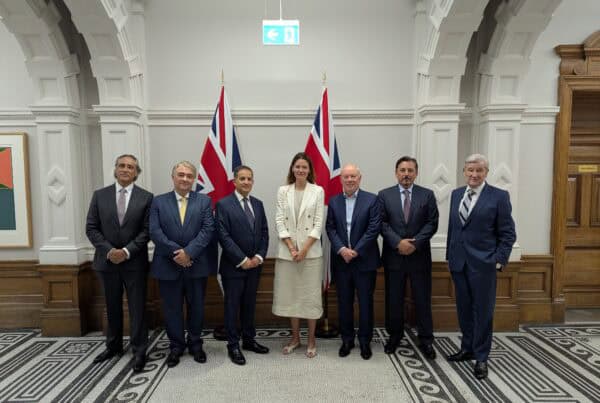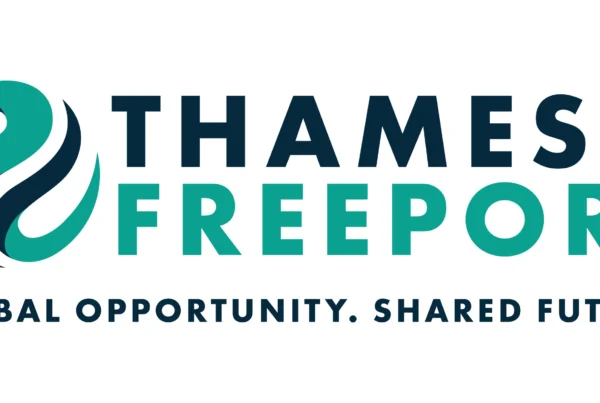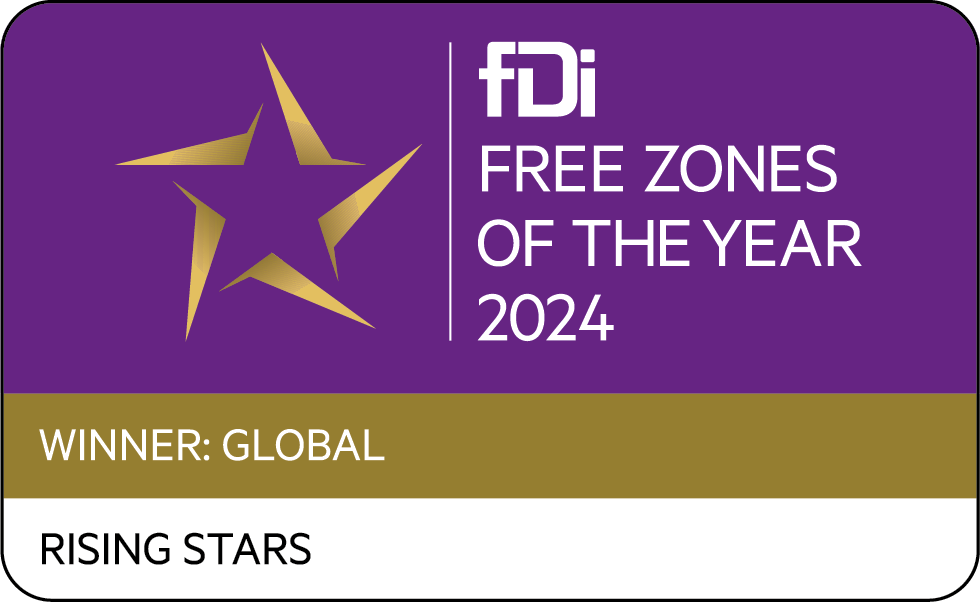
Special Economic Zones require their own specialist dictionary to understand the intricacies and details involved. For businesses relocating to the UK from overseas, it is important to understand the terminology and the following glossary of SEZ terms will help you to get to grips with the benefits of SEZs and how they operate. These terms illustrate the variety of benefits and regulatory adaptations that make SEZs appealing to businesses.
Glossary of SEZ Terms
Bonded Area
A secure facility designed to help businesses manage import and export costs. A bonded area is typically a warehouse where imported goods can be stored without paying import duty or VAT (value-added tax).
Business Rate Relief
A reduction or exemption from business rates (local property tax) granted to businesses to incentivise investment in specific areas. Within SEZs, it supports growing businesses by reducing overheads in their initial years within the SEZ.
Capital Gains Tax
A tax liability on the profits from sold assets. Within SEZs, there is typically a relief on Capital Gains Tax if proceeds are reinvested within the SEZ.
Customs Exemptions
Customs exemptions allow goods entering or exiting the zone to be exempt from standard import or export duties. This incentivises trade in SEZs by lowering costs for importing and re-exporting.
Employer National Insurance Contributions (ENIC)
Tax contributions that employers must pay in the UK. SEZs offer partial or full ENIC relief to employers to encourage job creation within the zones for up to 3 years.
Enterprise Zone
An Enterprise Zone is a type of SEZ found in urban areas and designed by the government to support economic growth and development. They offer tax breaks as an incentive to private businesses, attracting them to set up there to create jobs and develop neighbourhoods.
Export Processing Zone (EPZ)
An EPZ is a designated area within an SEZ focusing on export-oriented production. These zones offer tax incentives, streamlined customs processes and other benefits to attract businesses that export a majority of their goods.
Foreign Direct Investment (FDI)
FDI refers to investments made by a company or individual in one country into business interests in another country. SEZs aim to attract FDI by offering incentives and policies that protect foreign investments.
Free Trade Zone (FTZ)
A Free Trade Zone is an area where goods can land, be handled and re-exported without being subject to customs duties. FTZs promote international trade by easing restrictions on imported goods and attracting overseas businesses to expand in a new country.
Freeport
A Freeport is a type of SEZ located near ports including airports and seaports such as Thames Freeport. Freeports are strategically placed to enhance trade and designed to facilitate import and export through tax incentives, customs exemptions and streamlined regulatory processes.
Global Trade Management Software
This software supports companies with managing their international trade operations and is primarily used by businesses involved in import and export. Designed to help maximise profits and facilitate cross-border operations, it manages global trade efforts and provides opportunities to collaborate with trade partners across the world.
Green Freeport
A Green Freeport is the name given to Freeports located within Scotland. They offer the same or similar incentives and policies as Freeports across the UK but have received a different title from the Scottish Government.
Green Industrial Cluster
A Green Industrial Cluster is a grouping of environmentally focused industries within a Special Economic Zone. This cluster supports sustainable trade, aiming to reduce carbon footprints and the drive for near-zero emissions.
HMRC
HM Revenue and Customs (HMRC) is the UK’s tax, revenue and customs authority. All businesses set up in the UK need to be registered with HMRC for the collection of taxes and customs management.
Industrial Park
A zoned area developed for industrial activities, often providing infrastructure, utilities and logistical support. These parks optimise operation and resource use.
Investor Protection
Investor protection within an SEZ involves policies that safeguard foreign investors. This includes property rights, dispute resolution and protections against sudden regulatory changes which makes SEZs more appealing for long-term investments from overseas.
Rent Equivalent
Rent Equivalent refers to the estimated rental value saved by businesses operating within SEZs where reduced rental rates are sometimes provided to attract investment.
Permitted Development Rights
Permitted Development Rights allow certain developments to proceed without full planning permission which facilitates faster construction and adaptation of business properties within SEZs. This is a great incentive for overseas businesses, reducing the wait time for expanding into a new country.
Public Private Partnership (PPP)
A PPP is a long-term, collaborative arrangement where government and private-sector entities share investment, and operational and financial responsibilities in infrastructure projects. SEZs often use PPPs to develop facilities and services.
Secure Customs Zone
A Secure Customs Zone is a designated area with controlled access, where goods can be imported, stored or manufactured with special customs privileges. The zone also ensures that businesses are compliant with trade regulations while facilitating trade flows. A Secure Customs Zone is most commonly referred to as Freeport within the UK.
Single Trade Window
A Single Trade Window is a streamlined platform for managing import, export and transit regulatory requirements in one place. The Single Trade Window was introduced by the UK in 2024 to provide a gateway between businesses and UK border processes, enhancing the efficiency of import and export by reducing the administrative burden for companies operating in SEZs.
Special Economic Zone (SEZ)
An SEZ is a geographically designated area within a country with alternative regulations, tax incentives and simplified administrative processes designed to attract businesses and boost economic activity through investment and job creation. The operation and tax processes within an SEZ are different from areas outside of the SEZ border. SEZs exist all over the world, operating differently in each country. In developing countries, they support economic growth and infrastructure whilst in developed countries, they attract Foreign Direct Investment and support global trade. Types of SEZ include Freeports, Enterprise Zones and Industrial Parks.
Stamp Duty Land Tax (SDLT)
SDLT is a tax on all property transactions in the UK, both commercial and residential. SEZs within the UK offer exemptions or reductions on Stamp Duty Land Tax for businesses investing in non-residential property within the zone. This makes SEZs attractive locations for corporate expansion to overseas businesses looking to grow and invest within the UK.
Structures and Buildings Allowance
The Structures and Buildings Allowance provides tax relief on the costs of constructing or renovating commercial structures. In SEZs, this can incentivise infrastructure development by reducing long-term costs for investors. Freeports offer Enhanced Structures and Buildings Allowance to support global trade and attract Foreign Direct Investment.
Tax Incentives
Tax incentives are reductions or exemptions in UK tax obligations provided to businesses within SEZs. They include lower tax rates, customs exemptions, and reduced property taxes to encourage foreign investment, support global trade, and assist economic growth.



